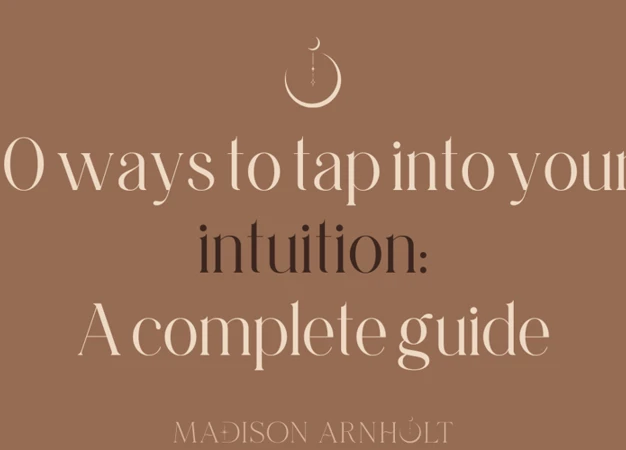Do you often find yourself unsure about how to approach relationships and make important decisions? Harnessing your intuition may be the key to navigating these complexities. In this article, we will explore what intuition is and why it is crucial in relationships. We will also provide practical steps to develop and enhance your intuition, as well as different types of intuition you can tap into. Using your intuition can help you recognize red flags, make better decisions, and improve communication in relationships. We will discuss practical exercises to strengthen your intuition and overcome doubts and fears. By the end of this article, you will have the tools you need to harness your intuition and navigate relationships with confidence and clarity.
Contents
- What is Intuition?
- The Importance of Intuition in Relationships
- How to Develop Your Intuition
- Types of Intuition
- Using Intuition to Navigate Relationships
- Practical Exercises to Enhance Intuition
- Overcoming Doubts and Fears
- Conclusion
-
Frequently Asked Questions
- 1. Can everyone develop their intuition?
- 2. How can self-awareness help in developing intuition?
- 3. Can intuition be wrong?
- 4. How can mindfulness practice enhance intuition?
- 5. What are some signs of a gut feeling?
- 6. How can intuition help in recognizing red flags in relationships?
- 7. How can journaling enhance intuition?
- 8. Can intuition help in decision-making?
- 9. How can communication and listening be improved through intuition?
- 10. Is it possible to overcome doubts and fears related to intuition?
- References
What is Intuition?
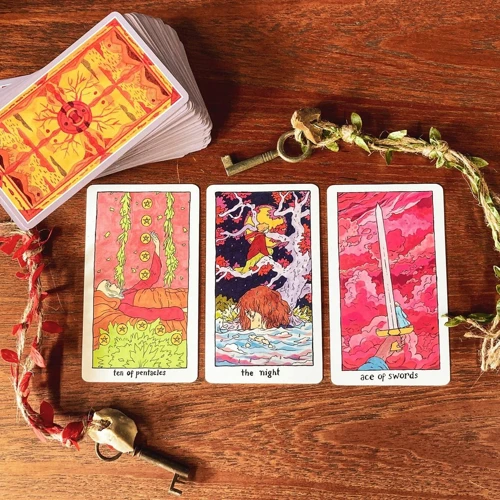
Intuition is a powerful innate ability that guides us through life, often without us fully understanding how it works. It is often described as a “gut feeling” or a sense of knowing without logical reasoning. Intuition taps into our subconscious mind, using past experiences and patterns to provide insight and guidance in the present moment. It is a valuable tool, especially when navigating relationships, as it can help us make decisions that align with our true selves and avoid potential pitfalls. Intuition is different from overthinking or analyzing situations, as it is a more immediate, instinctive response. It is a subtle voice within us that guides us towards what feels right. Intuition can manifest in various ways, such as a feeling of certainty, a sudden knowing, or even through dreams and synchronicities. Developing and honing our intuition is essential in order to access its full potential. By cultivating self-awareness, practicing mindfulness, and trusting our gut feelings, we can tap into our intuitive abilities and use them to enhance our relationships. To learn more about the power of intuition, visit /the-power-of-intuition/. Understand the connection between intuition and empathy by visiting /the-connection-intuition-empathy/. And if you want to delve deeper into unleashing your intuitive creativity, insights, and exercises, check out /unleashing-intuitive-creativity-insights-exercises/.
The Importance of Intuition in Relationships
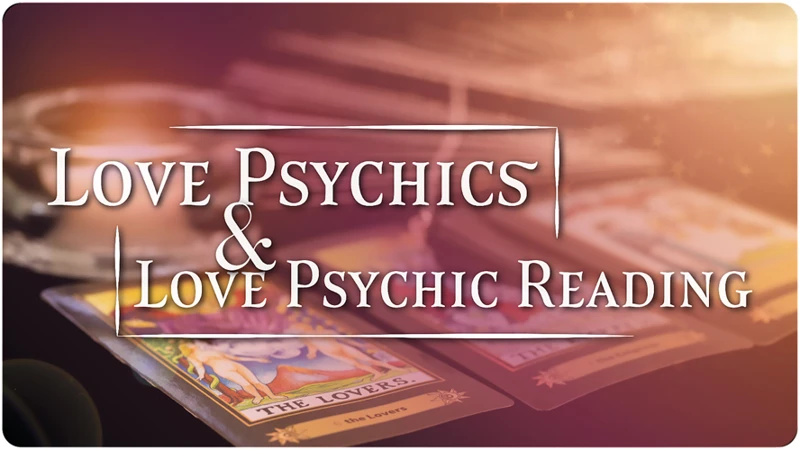
Intuition plays a crucial role in relationships, providing valuable insights and guidance that can help us navigate the complexities of human connection. Here are a few reasons why intuition is important in relationships:
1. Uncovering Unspoken Truths: Intuition allows us to pick up on subtle cues and non-verbal communication, helping us understand what someone is truly feeling or thinking, even when they don’t express it verbally. It helps us read between the lines and recognize hidden emotions, allowing for deeper understanding and empathy.
2. Recognizing Red Flags: Our intuition often alerts us to potential red flags or warning signs in relationships. It nudges us when something feels off or when there is a mismatch between someone’s words and actions. Trusting our intuition can save us from entering harmful or unfulfilling relationships.
3. Guiding Decision-Making: Intuition can guide us in making important decisions within our relationships. It can provide clarity when we are uncertain about whether to trust someone, commit to a relationship, or make changes within an existing partnership. Our intuition can guide us towards choices that align with our values and long-term happiness.
4. Enhancing Communication: By tapping into our intuition, we can become more attuned to the needs and desires of our partners. It allows us to pick up on cues that may not be explicitly expressed, leading to better communication and a deeper connection. Intuition helps us understand not only what is being said but also what is left unsaid.
5. Building Authentic Connections: Intuition is a powerful tool for recognizing genuine connections. It helps us differentiate between surface-level attractions and deeper soul connections. By listening to our intuition, we can foster authentic relationships that are based on mutual understanding, respect, and compatibility.
Intuition plays a vital role in relationships by helping us uncover unspoken truths, recognize red flags, guide decision-making, enhance communication, and build authentic connections. It allows us to navigate relationships with greater insight and make choices that align with our true selves. Trusting and honing our intuition can lead to more fulfilling and meaningful relationships.
How to Develop Your Intuition
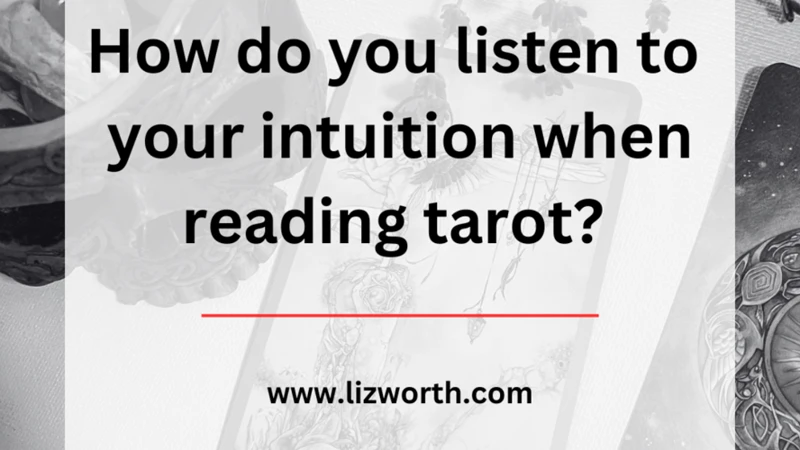
Developing your intuition is a journey that requires patience, self-reflection, and practice. Cultivating self-awareness is an essential step in this process. Take time to examine your thoughts, emotions, and patterns of behavior, as this introspection will help you understand yourself on a deeper level. Practicing mindfulness is another powerful tool to enhance your intuition. By staying present in the moment and tuning into your senses, you become more attuned to the subtle nudges and signals from your intuition. Trusting your gut feelings is crucial as well. Pay attention to those initial instincts and hunches that arise within you, even if they don’t seem logical. Trusting your intuition is about honoring your inner wisdom. Remember, developing your intuition is a personal journey, so embrace it with an open mind and heart.
1. Cultivate Self-Awareness
To harness your intuition and navigate relationships effectively, it is important to cultivate self-awareness. Self-awareness involves developing a deep understanding of your own thoughts, emotions, and behaviors. By becoming more aware of yourself, you can better recognize when intuition is speaking to you. Here are some steps to help you cultivate self-awareness:
1. Practice introspection: Take time regularly to reflect on your thoughts, feelings, and experiences. Ask yourself questions like “Why did I react that way?” or “What is my true motivation behind this decision?” This process of introspection allows you to uncover underlying patterns and beliefs that may influence your intuition.
2. Pay attention to your body: Your body often communicates important information through sensations and physical feelings. Notice how certain situations or people make you feel. Do you feel tense or at ease? Do you experience a flutter in your stomach or a sense of lightness? These bodily cues can provide valuable insights into your intuition.
3. Keep a journal: Writing down your thoughts and experiences can help you gain clarity and identify recurring themes or patterns. Take note of moments when your intuition seemed to guide you correctly or when you ignored it and later regretted it. Reviewing your journal entries can help you identify your intuitive signals and learn to trust them more fully.
4. Seek feedback from others: Sometimes, we may have blind spots when it comes to our own behavior. Asking trusted friends or family members for feedback can provide valuable insights into how you show up in relationships. They may notice patterns or behaviors that you are unaware of, which can help you become more self-aware.
Remember, cultivating self-awareness is an ongoing practice that requires patience and openness. It is through this process that you can develop a deeper connection with your intuition and use it as a guiding force in your relationships.
2. Practice Mindfulness
Practicing mindfulness is a powerful technique to sharpen your intuition and enhance your ability to navigate relationships. Mindfulness involves intentionally bringing your attention to the present moment, without judgment or attachment to thoughts or emotions. By practicing mindfulness regularly, you cultivate a heightened sense of awareness and become more attuned to your inner wisdom. Here are some ways to incorporate mindfulness into your daily life:
1. Meditation: Set aside dedicated time each day to sit in stillness and observe your thoughts and sensations. Focus on your breath and allow yourself to fully experience the present moment. This practice helps quiet the mind, allowing your intuition to emerge.
2. Body Scan: Take a few minutes each day to scan your body from head to toe, noticing any areas of tension or discomfort. This practice not only brings your attention to the present moment but also helps you develop a deeper connection with your body’s signals and intuition.
3. Sensory Awareness: Engage your senses fully by paying attention to the sights, sounds, smells, tastes, and textures of your surroundings. By immersing yourself in the present moment, you become more attuned to subtle cues and intuitive insights.
4. Slow Down: In our fast-paced lives, we often rush through tasks and interactions. Slowing down allows you to be more present and attentive. Whether it’s eating a meal, engaging in conversation, or performing daily activities, give yourself the space to savor the experience and tune into your intuition.
5. Non-Judgmental Observation: Practice observing your thoughts and emotions without judgment. Recognize that thoughts and emotions are transient and don’t define you. This non-judgmental mindset helps create space for intuition to rise to the surface.
By incorporating mindfulness into your daily routine, you become more attuned to your intuition and better equipped to navigate relationships with clarity and compassion.
3. Trust Your Gut Feelings
Trusting your gut feelings is a crucial aspect of harnessing your intuition in relationships. Your gut feelings are those strong, instinctive reactions that seem to come out of nowhere. They often arise as a physical sensation in your stomach or chest, and they can provide valuable insights that your logical mind may not be able to comprehend. When it comes to relationships, your gut feelings can serve as powerful red flags or indicators of compatibility. They can help you sense when something feels off or when a situation or person is not aligned with your values and needs. To trust your gut feelings, it’s important to learn to distinguish them from fear or anxiety. Gut feelings are not driven by fear; they are a deep inner knowing that transcends rationality. One way to cultivate trust in your gut feelings is to reflect on past experiences where you ignored them and later realized they were correct. Pay attention to how your body reacts in different situations, and take note of any intuitive nudges you receive. Over time, as you listen and act upon your gut feelings, you will build confidence in your intuition and strengthen the bond between your instinctive knowing and rational decision-making. Trusting your gut feelings is a powerful tool that can help you navigate relationships with authenticity and clarity.
Types of Intuition
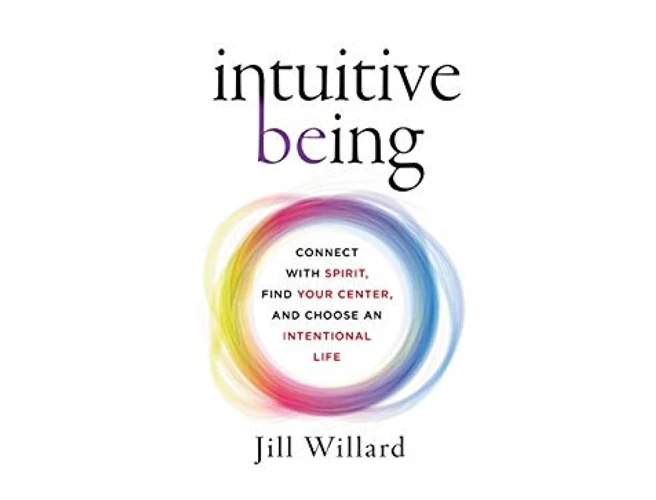
There are different types of intuition that we can tap into to gain insight and guidance in our relationships. The first type is a “gut feeling,” which is a strong instinctive response that may be difficult to explain or justify logically. Trusting this gut feeling can help us navigate relationships and make decisions that align with our true selves. Another type is emotional intuition, which involves recognizing and understanding our own and others’ emotions. This allows us to better empathize and connect with our partners, improving our communication and fostering deeper emotional connections. Synchronicities and signs are also forms of intuition, where we notice meaningful coincidences or signs that provide guidance or confirmation about our relationships. By being aware of and open to these different types of intuition, we can navigate relationships with greater clarity and intuition.
1. Gut Feeling
A gut feeling is one of the most common and recognizable forms of intuition. It refers to the instinctive response we experience in the pit of our stomachs, providing a sense of knowing or unease about a particular situation or person. This intuitive sensation is often subtle but can be incredibly powerful. When we have a gut feeling, it’s essential to pay attention and not dismiss it without consideration. So how can we recognize and trust our gut feelings in relationships? Here are some key characteristics of a gut feeling:
1. Immediate Response: Gut feelings often arise spontaneously, without conscious thought or analysis. They can occur when meeting someone for the first time, during a conversation, or even when contemplating a decision. It is a quick and instinctive response that should not be ignored.
2. Physical Sensations: Pay attention to how your body reacts to certain situations or individuals. A gut feeling may manifest as a tightening in your stomach, a fluttering sensation, or an overall sense of discomfort. These physical sensations are signals from your intuition.
3. A Sense of Certainty: Gut feelings provide a strong sense of certainty or conviction, even in the absence of concrete evidence or logical reasoning. It’s important to differentiate between fear-based gut feelings and genuine intuitive guidance. Trusting your intuition and evaluating the situation as objectively as possible can help distinguish between the two.
4. Consistency Over Time: Gut feelings often remain consistent over time, even as circumstances change. If you continually have a particular feeling or reaction towards someone or something, it’s worth exploring further and understanding the underlying reasons behind it.
By acknowledging and honoring our gut feelings, we can navigate relationships with greater clarity and avoid potential negative experiences. Trusting your gut can guide you towards healthier relationships and help you make decisions that are aligned with your intuition and values.
2. Emotional Intuition
Emotional intuition, also known as empathic intuition, is a type of intuition that allows us to sense and understand the emotions of others. This form of intuition goes beyond simply recognizing facial expressions or body language; it involves empathizing with others on a deeper level. When we tap into our emotional intuition, we can pick up on subtle cues and energy shifts that indicate how someone is truly feeling, even when they may not express it verbally. This intuitive ability enables us to connect with others on a more profound level, fostering empathy, compassion, and understanding in our relationships. Emotional intuition can also help us anticipate others’ needs, offer support during challenging times, and navigate conflicts with sensitivity. Honing our emotional intuition involves being attuned to our own emotions and listening to our inner emotional guidance. Taking the time to cultivate self-awareness and develop our emotional intelligence allows us to better perceive and interpret the emotions of those around us. By practicing active listening, paying attention to non-verbal cues, and being open to experiencing and expressing our own emotions, we can strengthen our emotional intuition and deepen our connections in relationships.
3. Synchronicities and Signs
Synchronicities and signs play a significant role in our intuitive guidance system. These are meaningful coincidences or events that seem to be divinely orchestrated, providing us with messages and guidance from the universe. Synchronicities can come in various forms, such as seeing repeated numbers like 11:11, encountering specific symbols or objects, or meeting someone unexpectedly who brings important insights or opportunities. These events often hold a deeper meaning and can serve as powerful signs to confirm or guide us in our relationships.
When we pay attention to synchronicities and signs, we open ourselves up to receiving messages from the universe. These messages can guide us towards making the right decisions, understanding our emotions better, or validating the choices we have made. It’s important to approach synchronicities and signs with an open mind and heart, allowing ourselves to be receptive to the messages they convey. Sometimes, these signs may not make immediate sense, but with time and reflection, their significance may become clear.
To enhance your ability to recognize synchronicities and signs, it is helpful to cultivate mindfulness and self-awareness. By being present in the moment and paying attention to the subtle cues around us, we can increase our receptivity to these messages. Keeping a journal of synchronicities and signs can also be beneficial, as it allows us to track patterns and gain a deeper understanding of the messages we receive.
Remember, synchronicities and signs are unique to each individual, so what may be considered a sign for one person may not hold the same significance for another. It’s essential to trust your own intuition and interpret these signs in a way that resonates with you personally.
Harnessing the power of synchronicities and signs can provide valuable insights and guidance in your relationships. They can serve as gentle nudges in the right direction or confirmation of the choices you make. Remain open to the possibility of synchronicities and signs, and you may find that they become powerful tools in navigating your relationships with greater clarity and intuition.
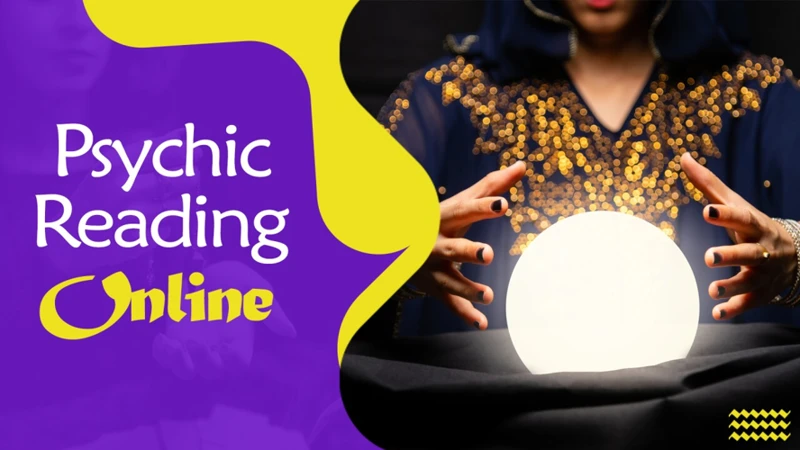
Using intuition to navigate relationships can be a game-changer. Intuition serves as a compass, guiding us towards healthier dynamics and connections. One way to harness intuition in relationships is by recognizing red flags. Intuition can send us signals when something doesn’t feel right or when a person’s actions don’t align with their words. By trusting our gut feelings, we can avoid getting involved in toxic or unfulfilling relationships. Additionally, intuition plays a crucial role in making decisions within relationships. When faced with choices, tuning into our inner knowing can steer us towards the path that aligns with our values and desires. Effective communication and active listening also rely on intuition. By paying attention to the subtle cues and underlying emotions, we can better understand and connect with our partners. Using intuition to navigate relationships empowers us to make choices that honor our authentic selves and cultivate healthier connections.
1. Recognize Red Flags
Recognizing red flags is crucial when it comes to navigating relationships with intuition. Red flags are warning signs or indicators that something may be off or potentially harmful in a relationship. Paying attention to these signs can help you avoid getting involved in unhealthy dynamics or making poor choices. One common red flag is inconsistent behavior. If someone is hot and cold, constantly changing their attitude or behavior towards you, it could be a sign of emotional instability or manipulation. Another red flag is a lack of respect or disregard for boundaries. If someone consistently crosses your boundaries or dismisses your needs and limits, it is important to take note and assess if this is a healthy dynamic. Other red flags can include excessive jealousy, controlling behavior, constant criticism, or a lack of communication and transparency. Trusting your intuition to recognize these red flags is key, as it allows you to listen to your inner voice and protect yourself from potentially harmful relationships. Remember, your intuition acts as a guide, providing you with valuable insights and signals that something may not be right. Stay attuned to your gut feelings and be proactive in addressing any concerns that arise.
2. Making Decisions
Making decisions in relationships can often feel daunting, as the stakes are high and the outcomes can impact our lives significantly. However, by harnessing your intuition, you can gain clarity and confidence in your decision-making process. When it comes to making decisions in relationships, here are a few key steps to consider:
1. Reflect on your values and priorities: Take the time to understand what truly matters to you in a relationship. What are your core values and non-negotiables? By aligning your decisions with your values, you can ensure that your choices are in line with what feels right for you.
2. Tune into your emotions: Emotions can provide valuable insights when making decisions. Pay attention to how different options make you feel. Do certain choices bring excitement and joy, or do they cause unease and discomfort? Trust the power of your emotional intuition to guide you towards decisions that feel authentic and aligned.
3. Listen to your body: Our bodies often hold wisdom that our minds may overlook. Pay attention to any physical sensations or reactions that arise when contemplating a decision. Do you feel a sense of lightness and ease, or do you experience tension and uneasiness? Your body can provide valuable cues to inform your decision-making process.
4. Seek clarity through meditation: Meditation can help quiet the noise of external influences and tap into your inner wisdom. Set aside dedicated time for meditation to clear your mind, focus on your intentions, and allow your intuition to surface. This practice can provide the clarity and guidance you need when faced with decisions.
5. Trust the process: Making decisions based on intuition requires trust and surrender. Understand that your intuition may guide you in unexpected directions, and that’s okay. Trust that the path revealed by your intuition will ultimately lead you to growth, learning, and fulfillment in your relationships.
By incorporating these steps into your decision-making process, you can harness the power of your intuition to make choices that align with your values, feelings, and inner wisdom. Remember that intuitive decision-making is a practice that strengthens over time, so be patient and gentle with yourself as you navigate the complexities of relationships.
3. Communication and Listening
Effective communication and active listening play a vital role in nurturing healthy relationships. When it comes to harnessing your intuition in relationships, communicating consciously and being fully present in your conversations are essential. Start by practicing active listening, which involves giving your full attention to the other person without interruption or judgment. This allows you to truly understand their perspective and connect with their emotions on a deeper level. To enhance your intuition during communication, pay attention to the subtle cues and nonverbal signals that the other person may be expressing. Trust your gut feelings and intuition when it comes to understanding what is unsaid or unexpressed. Remember, intuition goes beyond words and can help you pick up on the underlying emotions or intentions behind the communication. It’s also important to communicate openly and honestly, expressing your thoughts and feelings authentically. Trusting your intuition can help you navigate difficult conversations and guide you in expressing yourself in a way that fosters understanding and connection. By prioritizing effective communication and listening, you can strengthen your intuition and deepen your relationships.
Practical Exercises to Enhance Intuition
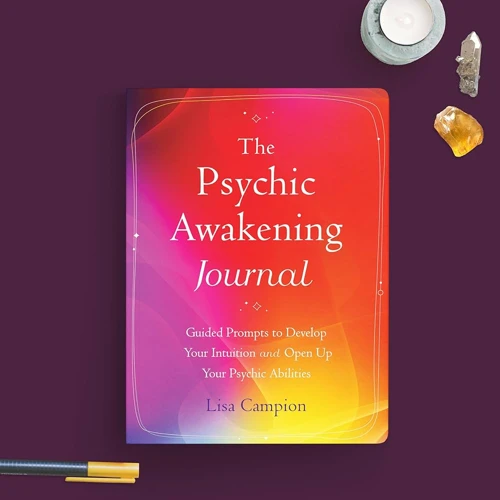
There are several practical exercises you can incorporate into your daily routine to enhance your intuitive abilities. First, try incorporating meditation and visualization into your practice. Find a quiet space, close your eyes, and focus on your breath. Allow yourself to relax and let go of any distractions. Visualize a situation or question you need guidance on and pay attention to any thoughts, feelings, or images that come to mind. Journaling is another effective exercise. Take time each day to write down your thoughts, feelings, and experiences. This process allows you to tap into your subconscious mind and gain insights that may not be immediately apparent. Additionally, you can use intuitive card readings as a tool for self-reflection and guidance. Choose a deck of cards that resonate with you, and pull a card each day. Reflect on the message or symbolism of the card and how it relates to your current situation. These practical exercises can help you strengthen your intuition and develop a deeper understanding of yourself and your relationships.
1. Meditation and Visualization
Meditation and visualization are powerful practices that can enhance your intuition and help you navigate relationships more effectively. Here are some steps you can take to incorporate meditation and visualization into your routine:
– Find a quiet and comfortable space: Choose a peaceful environment where you can relax and focus without distractions. This could be a dedicated meditation area in your home or simply a quiet corner where you can sit undisturbed.
– Set an intention: Before you begin, set an intention for your meditation session. This could be to strengthen your intuition, gain clarity on a specific relationship, or simply to cultivate a sense of inner peace and calm.
– Practice deep breathing: Start by taking a few deep breaths to center yourself. Focus on the sensation of the breath entering and leaving your body. This will help you relax and shift your attention inward.
– Engage in guided visualization: Use guided visualization techniques to access your intuitive wisdom. Close your eyes and imagine yourself in a peaceful setting. Picture yourself surrounded by loving energy and visualize a specific relationship or situation you want guidance on. Allow your intuition to provide insights and solutions through the visualization.
– Trust your intuition: As you meditate and visualize, pay attention to any intuitive flashes, sensations, or messages that come up. Trust that these are valuable insights and guidance from your intuition.
– Reflect and journal: After your meditation and visualization practice, take a few moments to reflect on any insights or messages you received. Write them down in a journal and allow yourself to fully process and integrate the information.
Regular practice of meditation and visualization can help you connect with your intuition on a deeper level. It can provide clarity, guidance, and a sense of inner knowing that can greatly benefit your relationships. Incorporate these practices into your daily routine to strengthen your intuitive abilities and navigate relationships with more confidence and insight.
2. Journaling
Journaling is a powerful practice for enhancing intuition in relationships. By putting our thoughts and feelings onto paper, we engage in self-reflection and gain clarity on our emotions and experiences. Here are some steps to incorporate journaling into your intuition-building routine:
1. Set the intention: Before you begin journaling, set the intention to connect with your intuition and gain insights into your relationships. This intention will help focus your journaling practice.
2. Choose a journaling technique: There are various journaling techniques you can use to enhance your intuition. One technique is free writing, where you write continuously without any self-censorship or judgment. Another technique is writing prompts, where you answer specific questions or explore specific topics related to your relationships.
3. Create a safe space: Find a quiet and comfortable space where you can journal without distractions. Create an ambiance that promotes relaxation and introspection, such as using soft lighting or playing calming music.
4. Tune into your emotions: Start by taking a few deep breaths and allowing yourself to get in touch with your emotions. Pay attention to any recurring feelings or sensations that arise as you reflect on your relationships.
5. Write without judgment: Begin writing about your experiences, thoughts, and feelings in your relationships. Write freely and openly, without judgment or concern for grammar or punctuation. Allow your intuition to guide your words and thoughts.
6. Reflect and analyze: After writing, take a moment to reflect on what you have written. Look for patterns, insights, and connections between your emotions and experiences. Use this reflection to gain a deeper understanding of your relationships and the role intuition plays.
7. Review and revisit: Set aside time to go back and review your journal entries periodically. This will help you track your progress, recognize patterns, and gain further clarity on your intuition’s guidance in your relationships.
Journaling is a personal and introspective practice that allows us to tap into our subconscious mind and access our intuition. Use it as a tool for self-discovery, growth, and understanding in your relationships. By incorporating journaling into your routine, you can strengthen your connection with your intuition and gain valuable insights to navigate your relationships more effectively.
3. Intuitive Card Readings
Intuitive card readings can be a powerful tool for enhancing intuition and gaining insight into relationships. Whether you use tarot cards, oracle cards, or any other type of divination deck, these cards serve as a visual and symbolic representation of different aspects of life. Performing an intuitive card reading involves asking a specific question or seeking guidance on a particular relationship matter. Shuffle the cards while focusing on your question, then select a card or multiple cards that resonate with you. Each card holds a unique meaning and message, and interpreting them requires tapping into your intuition and trusting the messages that come through. It’s important to remember that the cards themselves do not predict the future. Instead, they act as a tool to unlock your intuition and provide guidance and insights into the situation at hand. When interpreting the cards, pay attention to your initial impressions, emotions, and the intuitive senses that arise. It’s also helpful to refer to the card’s guidebook or online resources to gain a deeper understanding of the card’s symbolism. Trust your intuition to guide you in connecting the card’s message to your relationship situation. Intuitive card readings can offer new perspectives, highlight hidden aspects, and inspire you to take necessary actions in your relationships. It is also essential to approach card readings with an open mind and be willing to explore the messages that come through. Practice regularly, and over time, you will become more attuned to your intuition and the insights provided by the cards.
Overcoming Doubts and Fears
Overcoming doubts and fears is an essential step in harnessing your intuition to navigate relationships. Firstly, strengthening self-trust is crucial in trusting your intuitive insights. Recognize that your intuition is a valuable source of guidance and believe in your ability to make sound decisions. Letting go of expectations is another important aspect of overcoming doubts and fears. Release the need for a specific outcome and trust that your intuition will lead you towards what is truly best for you. Embracing vulnerability is key as well. Openly expressing your thoughts and emotions in relationships allows for deeper connections and authentic interactions. By embracing vulnerability, you create a space for intuitive insights to flow freely. Overcoming doubts and fears allows you to tap into the wisdom of your intuition and navigate relationships from a place of clarity and confidence.
1. Strengthening Self-Trust
Strengthening self-trust is a vital component in harnessing your intuition. When it comes to making decisions and navigating relationships, having confidence in your own judgment is crucial. Here are some tips to help you strengthen self-trust:
1. Reflect on past experiences: Take the time to reflect on past situations where you followed your intuition and it led you in the right direction. Remember the times when you trusted yourself and everything worked out well. Use these positive experiences as evidence that you can trust your intuition.
2. Practice self-compassion: Be kind to yourself and let go of self-judgment. Understand that mistakes are a part of the learning process. Embrace the fact that not every decision will be perfect, but by trusting yourself and your intuition, you are taking steps towards growth and self-discovery.
3. Tune into your body: Pay attention to how your body responds when you are faced with decisions or in certain situations. Notice any sensations, such as a feeling of expansion or lightness, which may indicate alignment with your intuition. Conversely, feelings of tension or heaviness may be a signal that something doesn’t feel right.
4. Start with small decisions: Begin by practicing self-trust in small, low-stakes decisions. Start with choices that are not overwhelming, and trust your intuition to guide you. As you experience positive outcomes from these decisions, your self-trust will grow stronger, making it easier to rely on your intuition for more significant choices.
5. Remove external influences: Take a break from seeking validation or opinions from others when making decisions. Instead, turn inward and listen to your inner voice. External influences can cloud your judgment and hinder the development of self-trust. Trust yourself and your own unique perspective.
Strengthening self-trust is an ongoing process that requires patience and practice. By cultivating self-awareness and embracing self-compassion, you can develop a strong foundation of trust in yourself and your intuition. With self-trust, you can navigate relationships with confidence and clarity.
2. Letting Go of Expectations
Letting go of expectations is a crucial step in harnessing your intuition to navigate relationships. Often, we enter into relationships with preconceived notions of how things should be or how the other person should behave. These expectations can create unnecessary pressure and lead to disappointment when reality doesn’t align with our idealized vision. By letting go of expectations, we allow ourselves to be present and open to the true nature of the relationship. Here are some strategies to help you let go of expectations:
1. Practice acceptance: Accept that relationships are a dynamic journey, and they may not always meet your specific expectations. Embrace the uncertainties and imperfections that come with human connections.
2. Focus on the present moment: Instead of dwelling on past disappointments or projecting future outcomes, concentrate on the current state of the relationship. Pay attention to how you and the other person are showing up in the present moment.
3. Communicate openly: Share your desires, needs, and boundaries with your partner or loved ones. Open and honest communication can help manage expectations and align both parties’ understanding of the relationship.
4. Embrace flexibility: Be open to change and willing to adapt your expectations as the relationship evolves. Allow the relationship to unfold naturally without trying to control or force outcomes.
5. Practice self-compassion: Be kind to yourself and recognize that you are also a work in progress. Accept that you may have your own limitations and allow yourself to make mistakes and learn from them.
By letting go of expectations, you create space for intuition to guide you in the relationship. You become more attuned to the present moment and the subtle cues that your intuition picks up on. This allows for a deeper connection and understanding with others, as well as a greater sense of fulfillment and peace within yourself. Remember, relationships are constantly evolving, and by embracing the unknown, you open yourself up to the infinite possibilities that come with following your intuition.
3. Embracing Vulnerability
Embracing vulnerability is an essential aspect of harnessing your intuition in relationships. When we open ourselves up and allow ourselves to be vulnerable, we create a space for deeper connection and understanding with others. Vulnerability allows us to let go of our defenses and pretenses, enabling us to truly be ourselves and show up authentically in our relationships. It is through vulnerability that we can build trust and intimacy with our partners or loved ones. By acknowledging and expressing our fears, insecurities, and emotions, we create an opportunity for others to do the same. This open and honest communication fosters a stronger bond and a greater sense of empathy. Embracing vulnerability also means embracing uncertainty and the possibility of getting hurt. It takes courage to share our deepest thoughts and feelings with others, but it is only through this vulnerability that we can fully connect on a profound level. When we have the courage to be vulnerable, we are more open to receiving intuitive insights and guidance. Our intuition thrives in an environment of honesty and openness. To embrace vulnerability, practice self-compassion and self-acceptance, and let go of the fear of judgment. Embrace the unknown and allow yourself to be seen and heard. Remember, vulnerability is not a sign of weakness; it is a testament to our strength and authenticity. So, let go of your inhibitions, embrace vulnerability, and watch as your intuition guides you towards healthier and more fulfilling relationships.
Conclusion
In conclusion, harnessing your intuition is a valuable skill that can greatly benefit your relationships. By understanding what intuition is and its importance in relationships, you can begin to develop and strengthen this innate ability. Cultivating self-awareness and practicing mindfulness are essential steps in honing your intuition. Trusting your gut feelings and recognizing different types of intuition, such as gut feelings, emotional intuition, and synchronicities, can guide you in making better decisions and identifying red flags in relationships. A few practical exercises, such as meditation and visualization, journaling, and intuitive card readings, can enhance your intuition and give you further insights. Overcoming doubts and fears, strengthening self-trust, letting go of expectations, and embracing vulnerability are also crucial in allowing your intuition to flourish. By tapping into your intuition and listening to your inner voice, you can navigate relationships with confidence, clarity, and a deeper understanding. Embrace the power of intuition and unlock the wisdom it holds for your relationships.
Frequently Asked Questions
1. Can everyone develop their intuition?
Yes, everyone has the capacity to develop their intuition. While some individuals may naturally have a stronger intuitive sense, with practice and dedication, anyone can tap into and enhance their intuitive abilities.
2. How can self-awareness help in developing intuition?
Self-awareness is a key component in developing intuition. By understanding our own thoughts, emotions, and patterns, we can better recognize and differentiate our intuitive insights from other mental chatter, allowing us to trust and act upon our intuition more effectively.
3. Can intuition be wrong?
Intuition is not infallible, as it is influenced by our subconscious mind and past experiences. However, practicing discernment and learning to differentiate between genuine intuition and fear-based thoughts can help minimize the chances of intuitive misinterpretation.
4. How can mindfulness practice enhance intuition?
Mindfulness practice helps quiet the mind and cultivate presence, making it easier to tune into the intuitive signals that may otherwise be drowned out by external distractions. By being fully present in the moment, we can better access and trust our intuitive insights.
5. What are some signs of a gut feeling?
A gut feeling often manifests as a strong sensation in the stomach or a deep sense of knowing without logical reasoning. It may also be accompanied by a feeling of certainty, a tingling sensation, or even a sudden change in body temperature.
6. How can intuition help in recognizing red flags in relationships?
Intuition can serve as an early warning system, helping us recognize red flags or intuitive signals that something may be off in a relationship. By paying attention to our gut feelings and subtle intuitive cues, we can avoid potential harm or unhealthy dynamics.
7. How can journaling enhance intuition?
Journaling provides a way to connect with our inner thoughts, emotions, and intuitive insights. By regularly writing in a journal, we can develop a deeper understanding of ourselves, identify patterns, and gain clarity on our intuitive guidance.
8. Can intuition help in decision-making?
Absolutely! Intuition can be a valuable tool in decision-making. By tapping into our intuitive wisdom, we can make choices that align with our higher self and values, leading to more authentic and fulfilling outcomes.
9. How can communication and listening be improved through intuition?
Intuition can enhance communication and listening skills by helping us tune into the underlying emotions and meaning behind spoken words. By trusting our intuitive insights, we can respond empathetically, ask meaningful questions, and foster deeper connections in our relationships.
Yes, it is possible to overcome doubts and fears related to intuition. Building self-trust, letting go of expectations, and embracing vulnerability are some ways to cultivate a more confident and open relationship with our intuitive abilities.

